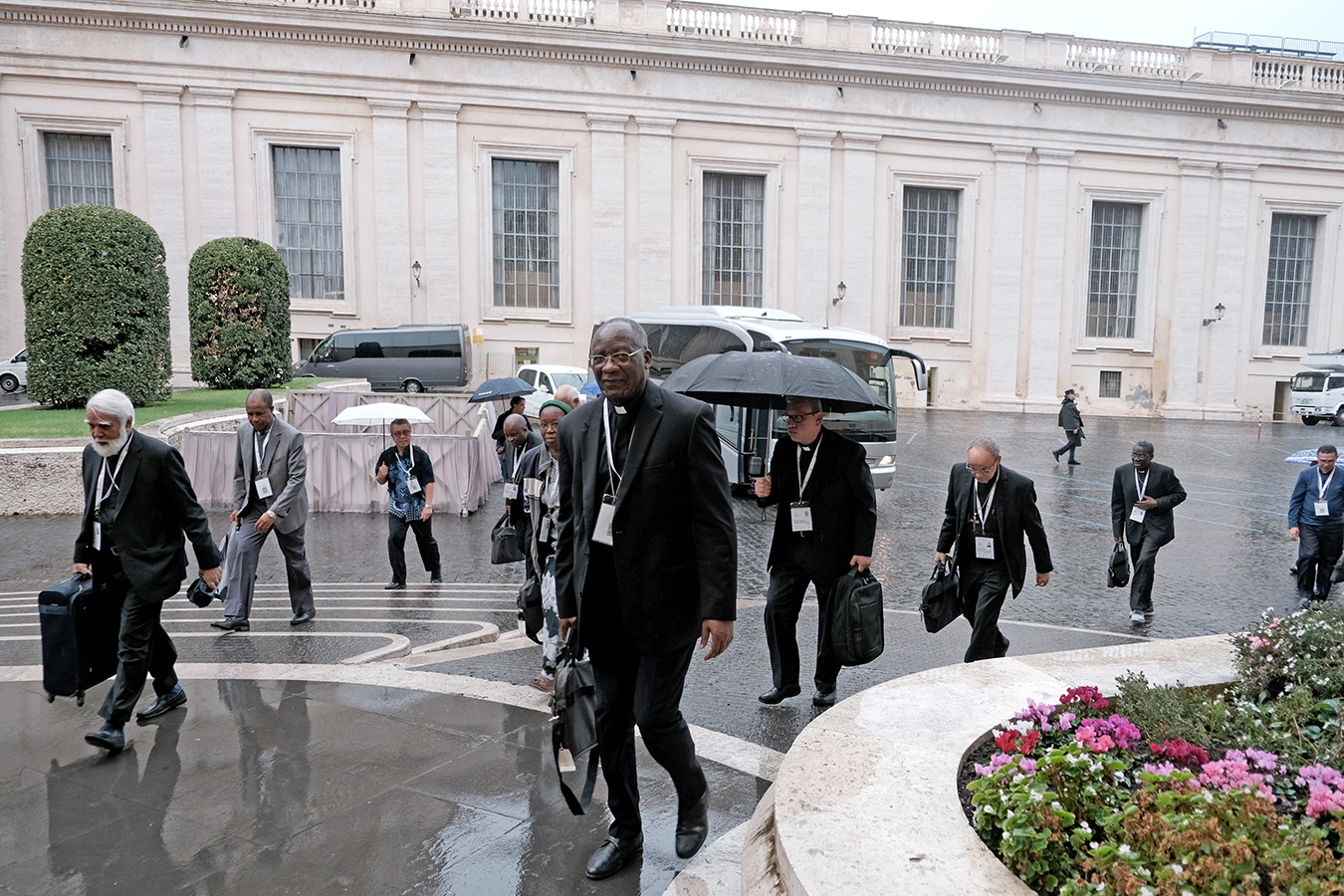Faith is immutable, but doctrine can develop and has in fact developed over time.
This was stressed by Cardinal Christoph Schönborn, the archbishop of Vienna and one of the Church’s top intellectuals.
The Bohemian-born Dominican, who taught dogmatic theology and headed the team that produced the Catechism of the Catholic Church in 1992 under Cardinal Joseph Ratzinger, the future Pope Benedict XVI, on Monday parried questions from journalists covering the 2023 Synod of Bishops at the Vatican.
Schönborn recalled that St. John XXIII “spoke of the immutability of the doctrine” at the opening of Vatican 2, the ecumenical council convened from 1962 to 1965 that introduced major reforms in the Church.
He pointed to the Holy Trinity, the Incarnation of the Word, and the Institution of the Eucharist by Jesus as examples.
“What the creed says is valid everywhere in the world,” Schönborn said.
“The apostles did not die for another faith than the 21 martyrs of Libya, the Coptic martyrs. They died exactly for the same faith as the apostles died,” he said, referring to Coptic Orthodox Christians beheaded by the Islamic State in 2015 and recognized by Pope Francis as martyrs in May.
“The faith … transmitted by their parents and by their Church has of course enormously developed since the apostles. But it has not been changed. That is classical Catholic teaching,” the Austrian prelate said.
Earlier in the press briefing, Schönborn said it was up to the pope to make changes to the catechism, as it was the pope who had promulgated it. He was asked if references to homosexual acts as “objectively disordered” could be removed, a key demand of LGBTQ campaigners.
But he pointed to a 2018 revision in the catechism ordered by Pope Francis, in the paragraph on the death penalty, which is now “inadmissible” in all cases.
The death penalty was not excluded previously if there was no other choice in defending people against an “unjust aggressor.”
Schönborn revealed that St. John Paul II, who promulgated the 1992 catechism, in fact wanted to explicitly condemn the death penalty, while St. Theresa of Calcutta repeatedly asked the late pontiff to strike it out of the text.
The paragraph in question, No. 2267, is under Article 5, on the Fifth Commandment, “You shall not kill.”
‘Dynamic’ tradition
At a general congregation of the 16th Ordinary General Assembly of the Synod of Bishops earlier on Monday, an Australian expert on Vatican 2 told delegates that tradition itself – teachings handed down from the apostles – can be “dynamic,” rather than “static.”
Fr. Ormond Rush, a professor at Australian Catholic University, invoked Ratzinger, who served as a theological expert during Vatican 2, and the council document Dei Verbum on divine revelation.
Rush quoted Ratzinger’s 1969 commentary titled “Theological Highlights of Vatican II,” which states: “Not everything that exists in the Church must for that reason be also a legitimate tradition; in other words, not every tradition that arises in the Church is a true celebration and keeping present of the mystery of Christ.”
Dei Verbum, Rush said, retrieved “a personalist understanding of revelation, as found in the Bible and in the patristic writings of the early centuries of the Church.”
“In Dei Verbum—and this is important for understanding synodality and the very purpose of this Synod—this divine revelation is presented as an ongoing encounter in the present, and not just something that happened in the past,” he said.
“This Synod is a dialogue with God. That has been the privilege and challenge of your ‘conversations in the Spirit.’ God is waiting for your reply,” he added.
‘Signs of the times’
Bishop Pablo Virgilio David of Kalookan, president of the Catholic Bishops’ Conference of the Philippines and a biblical scholar, said the “Synod on Synodality” is a continuation of the work of Vatican 2.
Addressing critics of the synod who claimed the assembly could be listening more to the “spirit of the age” than the promptings of the Holy Spirit, David said Christians should “learn to live meaningfully in this world.”
“What you call ‘spirit of the age’ is pejorative. You can also make it positive. Vatican 2 called it, the ‘signs of the times.’ The signs of the changing times in this world,” David told CBCP News.
While the “main meat and substance of the doctrine” should remain the same, “the circumstances are changing,” he said.
“The Holy Spirit will also make us listen to the spirit of the age. Whether we like it or not, we live in this world. How can we ignore this world? Yes, we are aiming for the Kingdom of God. But we live in the here and now. We live in this world. God created this world, and the world is good. We do not condemn the world, right?”







